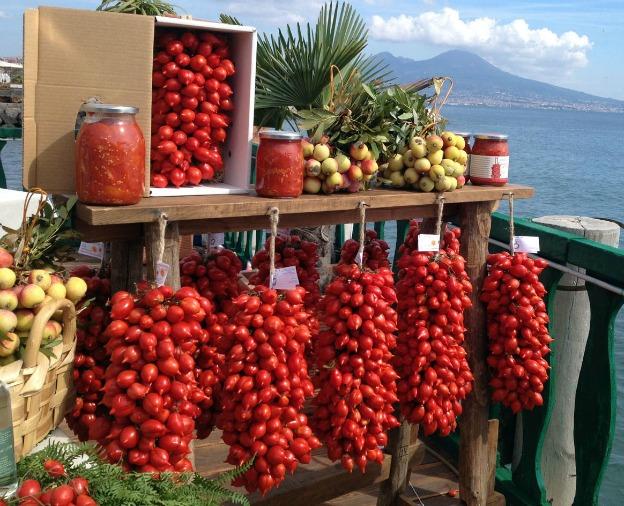You may be familiar with Pomodoro San Marzano, but have you ever heard of the “pomodorino vesuviano”?
The Vesuvio Piennolo cherry tomato (full name: Pomodorino del Piennolo del Vesuvio) is a tomato variety grown in the southern region of Campania, around Mount Vesuvius. It is one of the oldest and most typical variety grown in the region.
It has an elongated, oval shape, slightly resembling a pear, and features a pointed tip (spongillo). The skin is thick and the flesh firm; it can be stored for a long time. As described by Slow Food, which protects the Vesuvio Piennolo through one of its presidia, its flavor and fragrance become more intense and concentrated as time passes and the tomatoes dry out.
The Piennolo tomatoes are commonly hung up in bunches tied with hemp string, hence the name “piennolo”, meaning “hanging” in Neapolitan dialect. The ripest fruits are left to dry for about a month, then cut into pieces, called “pacchetelle,” and arranged in glass jars to make a traditional preserve.
The characteristics of the Piennolo tomatoes are strictly related to the soil where they are cultivated, which is the result of millennia of stratification of lava. They benefit from the high concentration of minerals of the rich lava soil. They are planted between March and April and ripen between July and August; they can be stored in clusters for months or canned for year-round consumption.
The Vesuvio Piennolo cherry tomato has been granted DOP status since 2009. It is ideal with pasta, for seafood sauces, and on pizza.
Have you ever tried it?








